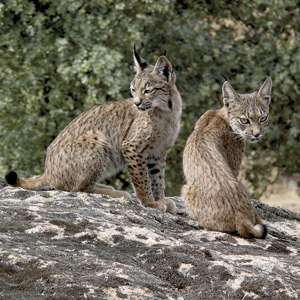CONTRIBUTION
Doñana was the site of one of WWF España’s first campaigns. The association acquired a series of plots along the Guadalquivir marshes which it subsequently transferred to the Spanish National Research Council (CSIC). This was the seed that would later grow into Doñana Biological Station (EBD) and Doñana National Park. In 1969, WWF purchased another property in the heart of the park: the Guadiamar Biological Reserve, which it manages jointly with the EBD.
Among WWF España’s other priorities is the defense and improvement of Spain’s forest ecosystems. The organization is a strong advocate of the use and sustainable harvesting of Mediterranean forestry products such as cork, and its project Corcho FSC, Sí is a powerful voice in the campaign for FSC (Forest Stewardship Council) certification of the bark harvested from biodiversity-rich cork woods.
It has also launched a major campaign to protect the bluefin tuna in the eastern Atlantic and the Mediterranean now that over-fishing – much of it illegal – has left the species on the verge of commercial extinction. In effect, the seine fishing and ranching of Atlantic bluefin tuna in Mediterranean waters has grown uncontrollably over the last decade.
In 2009, WWF España put forward plans to create a Marine Sanctuary for the bluefin tuna in one of its key breeding areas south of the Balearic Archipelago. The proposal was submitted to the Spanish Parliament, the Balearic Islands Parliament and the summit meetings of the International Union for Conservation of Nature (IUCN) and the International Commission for the Conservation of Atlantic Tunas (ICCAT).
WWF has issued a call not to eat this threatened species until there are signs that stocks are recovering. More than 50 European companies and restaurant chains, among them six of Spain’s top seven retailers, have pledged not to sell bluefin tuna until its fisheries are brought under a workable management framework. The organization has also applied for the Atlantic bluefin tuna to be included in Appendix I of CITES, the Convention on International Trade in Endangered Species of Wild Fauna and Flora, leading to a ban on its international trade, the main cause of the species’ depletion.
MORE
WWF España
